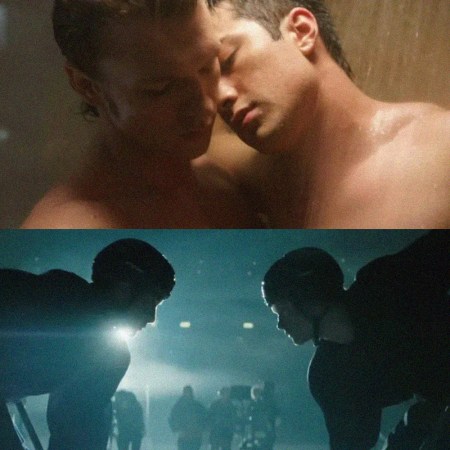The second season of HBO’s corporate-Shakespeare drama Succession has brought a number of shakeups to family-run conglomerate WayStar Royco. Financial instability looms, demanding that paterfamilias Logan Roy (Brian Cox) either succumb to a competitor’s buyout offensive or beef up by acquiring a flashy new property of his own. Regardless of the choice he ends up making, he’ll first have to free up some capital, and that’s where Vaulter comes in.
The Roy clan acquired the digital-media startup in the first season, as an emblem of WayStar Royco’s commitment to remaining lean, adaptable and modern. Things haven’t been going so hot since then, and the second episode of the new season makes Vaulter a casualty of restructuring. We learn that the site’s numbers haven’t been up to snuff, and to make matters worse, the higher-ups attempted to pull the wool over their new owner’s eyes by reporting phony traffic data. The once-promising publication gets reduced to a crumb of its former self, with 476 layoffs leaving only a skeleton crew of one editor and five interns to manage the surviving food and marijuana verticals. The rest of their precious content will be user-submitted sludge momentarily sifted through by the underpaid and disinterested. Ashes to ashes, et cetera.
To anyone who pays the rent by writing words on the Internet, this story will be all too familiar. It happens every six months or so, most memorably to the staff of the revamped-then-devamped MTV News in 2017. Creator Jesse Armstrong has gone to painstaking lengths to buttress this plot development with real-life detail, from the set design of the hip-to-a-fault office (I have it on good authority that Armstrong took a look around New York mag’s Vulture headquarters for inspiration) to the bloodless business jargon breaking the news. Snatches of dialogue ought to come with a trigger warning for their chilling accuracy; Vaulter’s head of operations tries to reason with his Roy overlords, “We had a couple shitty traffic months — Facebook changed their algorithm!” I have heard these words come out of editors’ mouths nearly verbatim, generally in life-or-death situations like this one. I have, on one occasion, been the person to say them.
Related: Brian Cox Talks Succession, Trump and the Rupert Murdoch Connection
But the utility of the episode titled “Vaulter” goes beyond giving conniptions to anyone who’s outlasted a “pivot to video” overhaul. (Of course Armstrong knows enough to include the dreaded mantra of all shortsighted media brands, like an industry-wide dogwhistle.) The episode offers an opportunity to get a bird’s-eye view of a distressingly common predicament heretofore seen from the ground. The vast majority of my peers, as well as the ordinary folk reading this essay, have no physical place in the episode. All the key conversations take place between the person who would be my boss’s boss’s boss and the person who’d be my boss’s boss’s boss’s boss. If me and my ilk have an avatar in this hour, it would be the unnamed extra who spits in the face of WayStar Royco’s emissary sent to break the bad news, and that guy technically doesn’t have lines.

The primary appeal of Succession lies in its escapist element, the offered chance to get a little taste of how the uppermost one percent lives. That often means watching with a mixture of contempt and envy as vast fleets of servants prepare lavish dinner banquets — think Entourage, except the show’s writing is aware of the moral black hole at its center — but in this instance, the vicarious remove serves a different purpose. In showing the turning nuts and bolts of multimillion-dollar decision making, Armstrong sheds light on how the whims of the ultra-rich trickle down to drip onto working-class faces like a thin stream of urine.
Low-level employees, without any intimate knowledge of operations in the C-suite boardrooms, tend to imagine that all edicts handed down from on high begin in a place of avarice. If the suits shut down the site, it’s because they have a calculator app in the lobe of their brain that would be dedicated to appreciating journalism and art in a regular human being. Armstrong’s fly-on-the-wall access makes a meaningful correction without casting the Roy family in an even faintly sympathetic light. He deeply loathes his characters, even the ones with a grain of relatability at the core of their being, too much so to let them off the hook. It’s not like the Roys reluctantly play the bad guy against their best efforts; we’re not supposed to feel bad for these people. But we do start to see how they arrive at the choices they make, even if they’re born from a combination of pettiness and ruthless pragmatism.
The scene in which the Roy executives decide to pull the plug on Vaulter feels almost violent in its callous promptness. The livelihoods of hundreds of people, a quantity strictly theoretical to the Roy family and terribly real to those of us at home, hang on a few exchanges of dialogue. Logan Roy makes the decision to gut Vaulter as quickly and casually as one might place a sandwich order, moving right along to the next item on the agenda. And yet even the most cynical can see where he’s coming from. Figures are figures, and Logan’s scheming son Roman (Kieran Culkin) makes a persuasive point when he asks why they allow way more bloat at Vaulter than at any of their other properties. Sure, there’s an argument to be made that media exists with a different set of economic imperatives than, say, a theme park. But they’re entrepreneurs, not philosophers.
They’re made to answer for their sins of consolidation when Logan sends whipping-boy son Kendall (Jeremy Strong) to inform the Vaulter staff that they’ve been dismissed. Understandably, Vaulter’s creator has some harsh words for Kendall, and demands to know why he’s come to drop the guillotine on them all. All Kendall can muster is an utterly resigned “My dad told me to.” This only makes the Vaulter staff angrier, and while Kendall’s surprised that they don’t accept his passing of the buck, viewers with experience in the biz understand perfectly: the powers that be always pull out language like this at difficult times, words about how there was nothing to be done, which may be hollow and may not. In any case, taking away the object of someone’s ire after taking away their salary will just piss them off further. Kendall’s phrasing lays bare just how craven their policies can be, while at the same time communicating how little control everyone in the room has over their fate. This all comes, as the expression goes, from the top down.
At junctures of great upheaval in digital media, suits-only talks like these are as immutable as the weather. But this episode reframes what some chalk up to the foggy notion of a “declining industry” to give it a human face and volitive actions. We can look directly into the eyes of the titans as we scramble to avoid getting crushed by their footfalls. The demise of online publishing is human, after all — not the result of some vague sea change driving home sapiens away from the written word.
This article appeared in an InsideHook newsletter. Sign up for free to get more on travel, wellness, style, drinking, and culture.
























